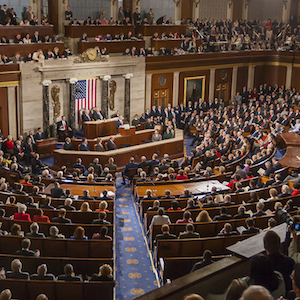 Despite SECURE 2.0’s recent seismic success, the current Capitol Hill crackup has many people wondering how it will affect chances for more retirement legislation this year. Without a speaker, the House of Representatives as a functioning body doesn’t exist, affecting several key areas.
Despite SECURE 2.0’s recent seismic success, the current Capitol Hill crackup has many people wondering how it will affect chances for more retirement legislation this year. Without a speaker, the House of Representatives as a functioning body doesn’t exist, affecting several key areas.
For instance, House committee staff will not be paid if a speaker is not elected by January 13, according to ARA’s Andy Remo, Director of Federal & State Legislative Affairs, citing a Politico report. No speaker means no steering committee; no steering committee means no chairs or rules for any other committees, a trickle-down effect leading to complete gridlock.
“It means no rules are agreed upon for the entire House either,” Remo, a former legislative assistant to Sen. Ben Cardin, D-Md., explained. “The House of Representatives is paralyzed and offline until this decision is made.”
It’s a depressing start to the 118th Congress, one with already muted expectations due to a divided legislature with a narrow Republican majority in the House and a narrow Democrat majority in the Senate.
ESG Angst
It also risks more partisanship in an already fiercely tribal D.C., including the one issue on which politicians generally agree—retirement security. This rare area of bipartisanship is threatened by what Remo predicts will be a 2023 focus on ESG.
“Once they get it all sorted out and the speaker seated, at that point, they are going to go heavily into ESG as a political focus, especially for Republicans,” Remo added. “It will be a lot of messaging, hearings, and competing bills, but again, not much will happen legislatively because you have a narrow Republican majority in the House, a narrow Democrat majority in the Senate, and a Democratic president. So, it’s divided government.”
In fact, he doesn’t really expect any retirement legislation of significance to happen in the next year. Still, hot-button issues like ESG, as well as crypto and fiduciary, will dominate discussions.
“We’ll see what other initiatives EBSA comes out with that will probably generate a response. DOL’s fiduciary rule rewrite is still on the table, and the Hill tends to be reactive to regulatory initiatives. So, when you saw the Biden administration finalize its ESG rule, there was a legislative reaction. Even when you have a largely symbolic response, I think it still would have an impact. It’ll just be the topic of conversation.”
Pecuniary Pain
The Department of Labor (DOL) released the rule, “Prudence and Loyalty in Selecting Plan Investments and Exercising Shareholder Rights,” just before Thanksgiving.
It stated that plan fiduciaries may consider climate change and other environmental, social, and governance factors when they select retirement investments and exercise shareholder rights like proxy voting. As ARA’s Nevin Adams noted, the operative word for plan fiduciaries is that they MAY consider ESG factors, not MUST. This concern arose after the proposed regulation.
The Biden administration specifically and pointedly sets aside the “pecuniary-only” standard—issued and finalized during the last year of the Trump administration—at the center of its version of the rule. DOL Assistant Secretary of Labor Lisa Gomez said the “pecuniary-only” standard had a “chilling effect” on plan investment decisions, even when those considerations were deemed to be in the best interests of participants and beneficiaries—causing them to miss opportunities and failing to guard against risks.
“We don’t want to poison the larger retirement policy well as the Hill focuses on the contentious topic of ESG in 2023,” Remo concluded. “That’s our concern as a retirement policy advocacy organization. It is a key advocacy goal of ARA to keep retirement policy bipartisan, so we can continue to achieve policy improvements to the retirement system. Therefore, our focus in the new year will be to educate the Hill on ESG investments in retirement plans to attempt to clear up any misinformation out there, since the ESG misinformation feels pervasive at the moment.”

